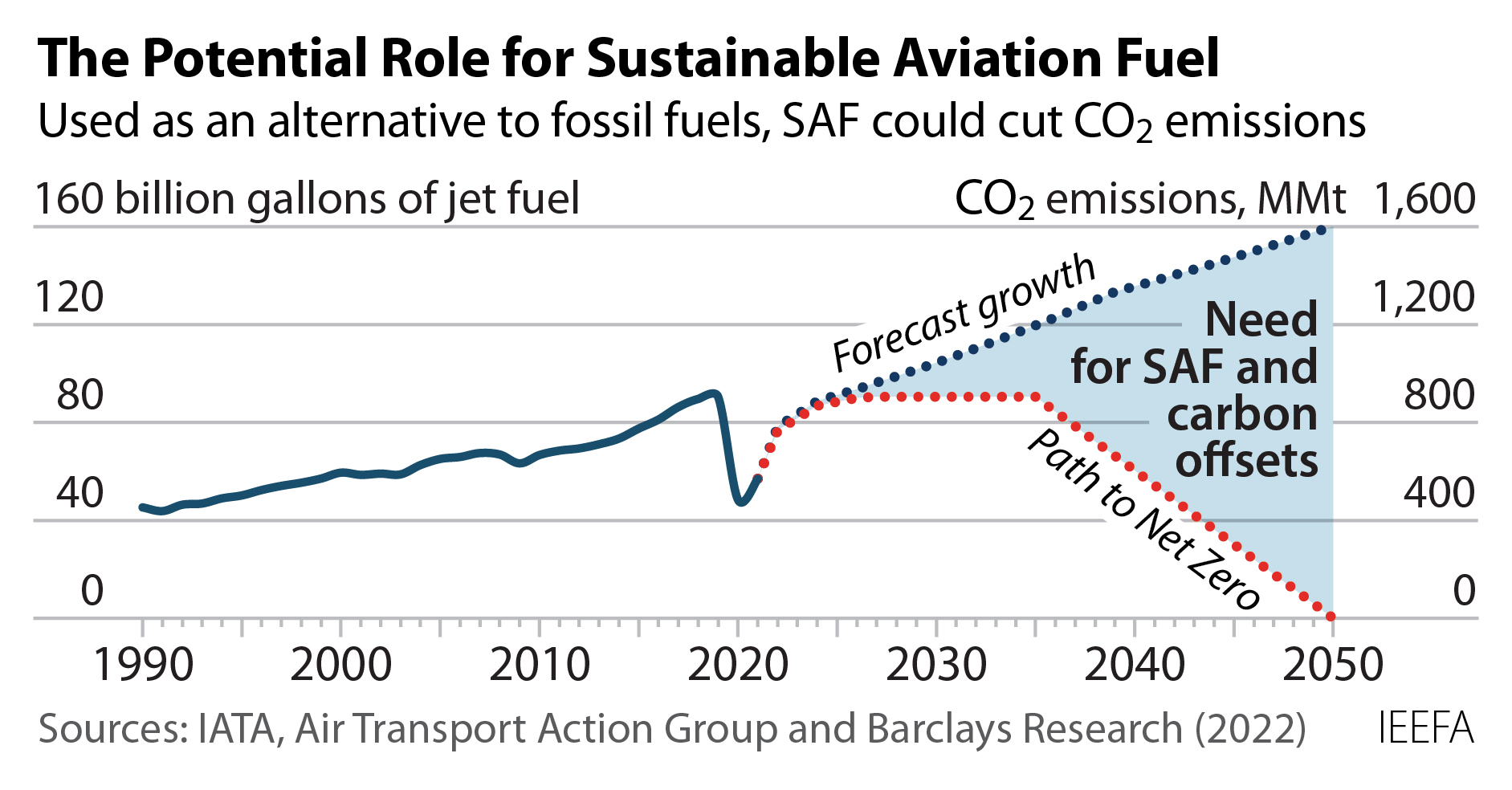Sustainable aviation fuel shows potential but issues remain

Key Takeaways:
In the effort to reduce the aviation industry’s carbon footprint, sustainable aviation fuel isn’t a panacea but increasingly shows potential as a promising alternative to fossil fuel.
According to the EIA, global commercial jet fuel demand is expected to grow in the coming years and SAF can help the industry meet its sustainability goals, especially in the near term.
While SAF holds great promise, widespread adoption faces several challenges including cost and environmental concerns.
Technological advancements, coupled with growing environmental awareness, are encouraging the adoption of SAF across the aviation industry.
The aviation industry faces challenges in the effort to reduce its carbon footprint. Sustainable aviation fuel (SAF) shows potential as a promising alternative to fossil fuels if cost barriers and other concerns are addressed, according to the latest Institute for Energy Economics and Financial Analysis (IEEFA) briefing.
Aviation is a substantial emission source across the globe, and the easiest way to lower aviation-related emissions would be to improve fuel economy. SAF can help the aviation industry meet its targets, especially in the near term. SAF is fuel derived from alternative feedstocks such as biomass or waste oils and is then tailored for use in aviation. SAF can reduce life cycle greenhouse gas emissions substantially compared to conventional jet fuel.
“The trajectory of SAF seems promising. Technological advancements, coupled with growing environmental awareness, are encouraging the adoption of SAF across the aviation industry,” said Abhishek Sinha, IEEFA energy finance analyst and author of the report. “With continued innovation, collaboration, and investment, SAF has the potential to pave the way toward a greener, more sustainable future for air travel.”
SAF does face challenges, however. If sustainable agricultural practices are not adopted, the production of SAF could lead to deforestation, loss of biodiversity and competition for land with food crops. Water usage poses another challenge. The production of biofuels often requires significant water resources for irrigation, which can strain local water supplies and affect water quality. There is also the cost issue. SAF producers will need to reduce costs to a level closer to that of traditional jet fuel to encourage widespread adoption.
The aviation industry should conduct a more rigorous analysis to understand what it means to propose large-scale use of biofuels in relation to food supply and water use. More analysis is needed to understand how to make SAF sustainable and how the industry can reach its goals.













